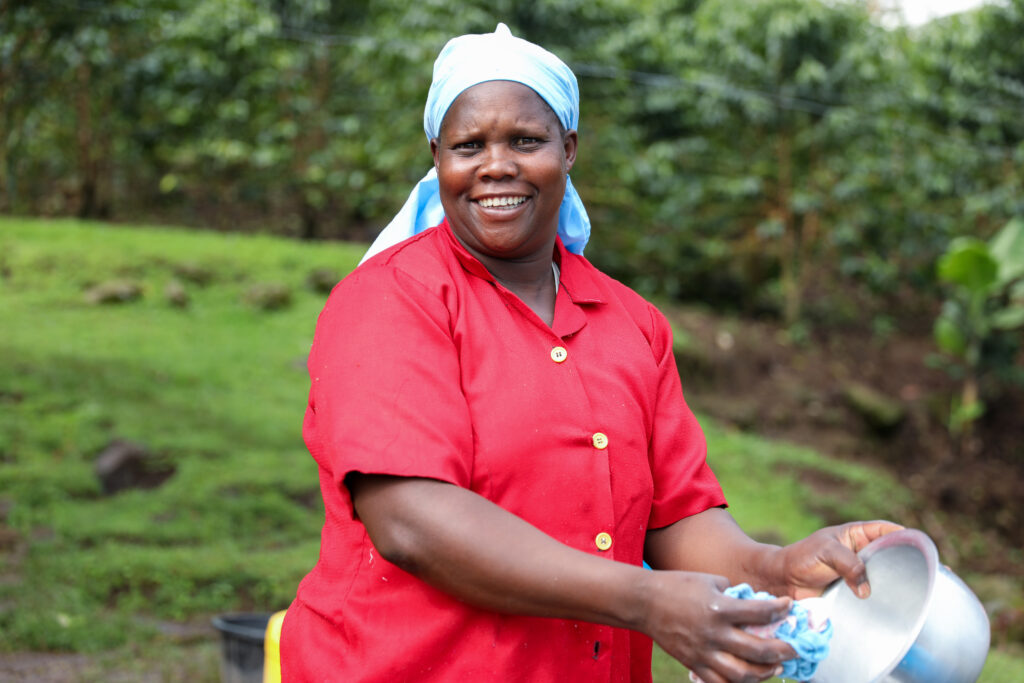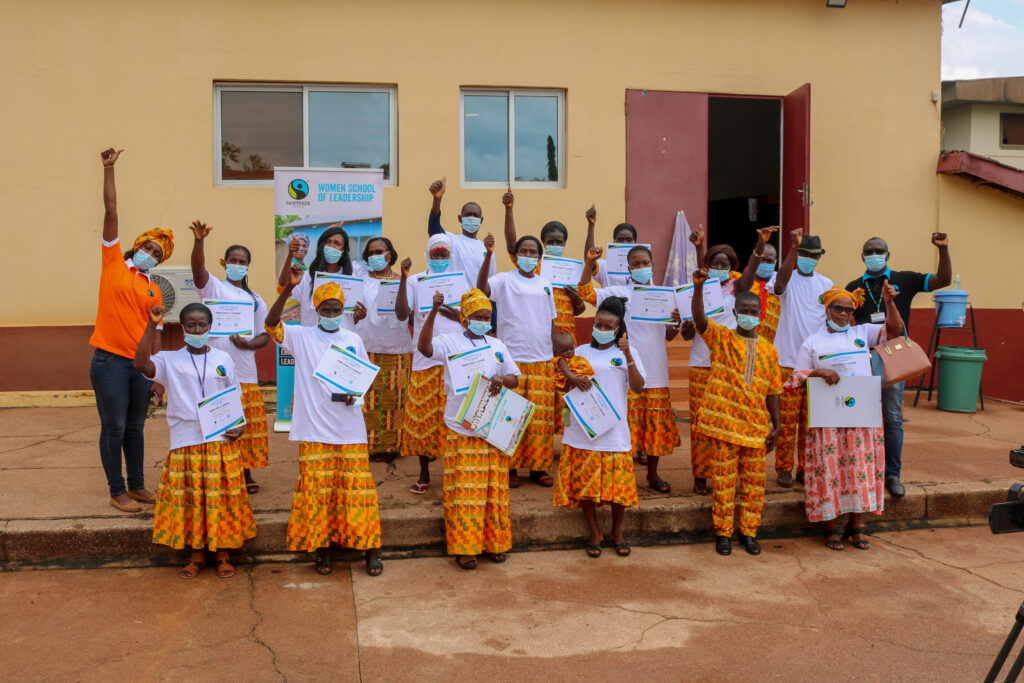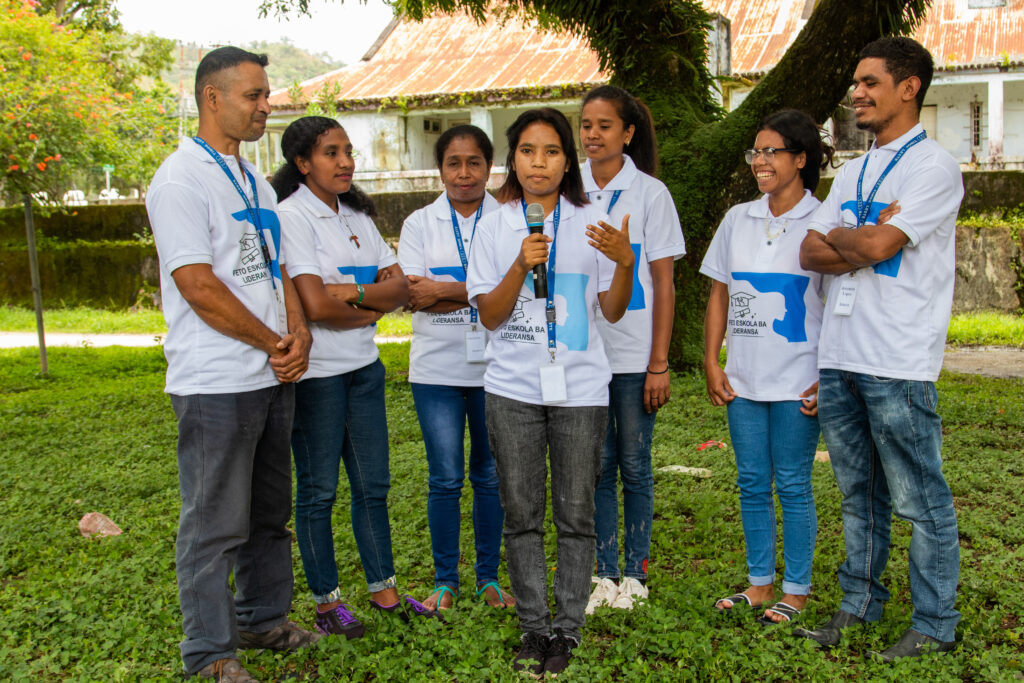Women to the front: how Fairtrade addresses gender equity
At Fairtrade, we continue to promote gender equity in sectors where equal access and opportunities for women are still a challenge.
The theme of this year’s International Women’s Day is #EmbraceEquity– equity is no longer an ideal, but rather a necessity and is part of our core mission to eliminate poverty. Rather than focusing on equality, a concept that would infer that all people need the same things, this year we are focused on equity, recognizing that each person has different circumstances and therefore may need specific resources to achieve the same opportunities as their peers.
Together, we work towards gender equity in matters of pay, opportunity, and personal freedom. In celebration of International Women’s Day, grab yourself of a cup of Fairtrade Creemore or Bean Fair coffee, and read the ways Fairtrade is pressing for progress for women and girls:
Setting standards that don’t discriminate

The Fairtrade Standards set the basic rules of our trading system and are designed to improve the lives of farmers and workers so they may have greater control over their future. These Standards cover a range of issues, from labour conditions and product-specific norms to environmental protection. They also encompass provisions specifically designed to prevent gender inequality, such as a ban on gender-based or marital status discrimination and the use of pregnancy tests during recruitments, and rules against Fairtrade certified organizations engaging in intimidating, abusive, or exploitative behaviour.
When you choose to drink Fairtrade tea, like Four O’Clock or Tega, or to wear Fairtrade cotton, like The Good Tee, you can be sure they follow the requirements of our Standards on democratic decision-making processes that give women an equal voice in the governance of their communities and workplaces.
Fairtrade addresses gender equity by training women to lead

Fairtrade recognizes that women’s autonomy and gender equity need to be promoted at all levels, but in line with our vision, we place special emphasis on trainings that benefit women at Fairtrade producer organizations.
One example of how Fairtrade addresses gender equity is our Women’s School of Leadership. The Women’s School of Leadership, launched by the producer network Fairtrade Africa, initiated in Côte d’Ivoire, a country where cocoa is big business and high levels of discrimination exist in accessing land ownership, credit, and agriculture inputs. Since women make up some 68 percent of the labour force, training in business skills can be a powerful tool. The inaugural class of the school brought together 24 women from seven different Fairtrade cocoa cooperatives (representing almost 5,000 members) for practical training in skills like finance, negotiation, and decision-making.
The program has now expanded to flower workers in Ethiopia, coffee farmers in Timor Leste and Papua New Guinea, and a similar program, the Gender Leadership School, has launched in Central and Southeast Asia. The school also trains men, helping them promote the value of gender equity in their communities.
Women leaders make a difference at all levels of a Fairtrade product, on the farm at origin and at the companies who sell the products themselves. You can show your support for gender equity and women entrepreneurship by savouring Fairtrade chocolates from Green Sun Foods, The Better Chocolate, or The Good Chocolatier, and better yet, pairing it with a Fairtrade Organic banana from Equifruit. Each bite is a step towards a more equitable future.
Seed-funding locally driven women’s initiatives
The Fairtrade Premium – an extra amount of money paid on top of the selling price that farmers and workers invest in projects of their choice – has also been a source of funding for initiatives selected by the cooperative members themselves. These can be things that benefit the whole community, such as funding for schools or hospitals, or they can be investments in members’ farms. Some cooperatives allocate a portion of Premium funds specifically to support women-led businesses.
ASOGABRI, a coffee cooperative in Guatemala, launched a Gender Program funded by the Fairtrade Premium. The program covers the implementation of a benefits policy for all the women producer members of the co-op. Projects like “Growing Women in Coffee” encouraged the transfer of coffee bush ownership to 150 women coffee farmers in the Kapkiyai Cooperative in Kenya and is continuing to grow. This type of project enables women (sometimes for the first time) to earn an independent income.
Challenging historic gender-based patterns

“Women in rural areas have the potential to raise agricultural production to levels that would feed up to 150 million more of the world’s hungry people if they had equal access to the means of production, including land, financial services, education and technology,” according to a 2011 United Nations report.
While women have a significant role in agriculture, they continue to face challenges in terms of access to productive resources such as land, credit, and technical assistance. This in turn reinforces patterns of discrimination and exclusion. Fairtrade is challenging the gender gap so women can stake their claim and succeed on their own terms.
In 2014, 470 women overcame historic land ownership constraints to establish Indonesia’s first all-women coffee cooperative, Koperasi Kopi Wanita Gayo (KKWG). While some women were previously members of other cooperatives, the cultural context of their Islamic community meant that women rarely voiced what they thought at work, and they felt reluctant to contradict their husbands and other men in their communities who were also present at cooperative meetings. KKWG was established in 2014 and achieved Fairtrade certification a year later.
In a study commissioned to assess progress on the Fairtrade Gender Strategy 2016-2020 and how Fairtrade addresses gender equity, it was found that Fairtrade certified cooperatives do better than non-certified ones in women’s representation in leadership positions. ASOGABRI co-op has also explored more proactive recruitment strategies to further address structural barriers to membership such as waiving land ownership requirements – a common barrier to women’s membership.
Developing effective interventions to dismantle persistent inequality
Fairtrade works in partnership with producer organizations, trade unions, commercial partners, and other NGOs and activists to continue pushing the envelope when it comes to workers’ rights. The fact that Fairtrade farmers and workers have representation at all levels of governance, including 50% of decision-making power in the general assembly, brings firsthand experience and perspectives into multi-stakeholder talks and negotiations that are grappling with persistent inequality in these global industries.
Take the banana sector, which spans all the regions where Fairtrade producers live and work. Through her participation in the Gender Task Force of the World Banana Forum, Fairtrade’s Global Product Manager for Bananas Silvia Campos is helping to identify best practices and interventions that can enhance women’s well-being and autonomy in the sector. “Women in Fairtrade certified organizations face barriers to their membership and leadership due to practices creating a bias towards men as well as the burden of unpaid care and domestic work which limits women’s free time. However, the research also showed that Fairtrade cooperatives can bring about positive change – such as introducing gender strategies that promote women’s involvement and activities that can develop skills and ownership,” says Campos.
Of course, these are examples of incremental improvement on how Fairtrade addresses gender equity, however much more needs to be done to bring about true equity. With conscious consumer habits that support farmers and workers, like starting your day with a Fairtrade breakfast with Prana and ending your afternoon with a pick-me-up Fairtrade coffee from 3 fois par jour, you are part of a movement that continues pressing for progress.